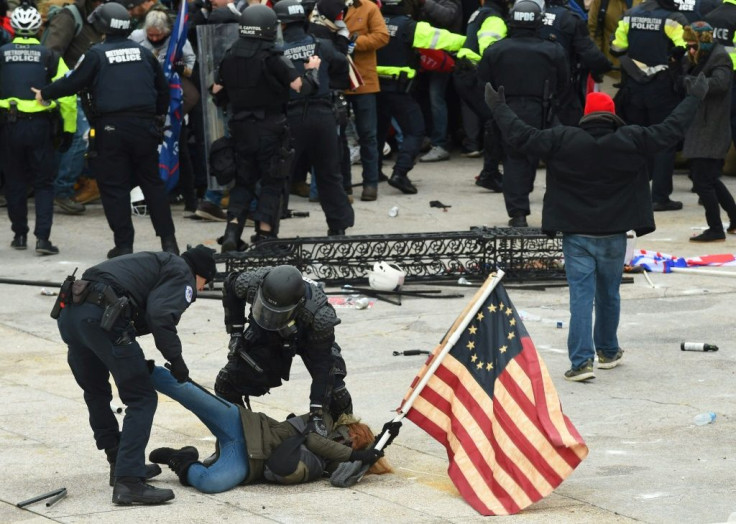Domestic Terror Threat Persists As Lawmakers Struggle To Find Solution
The House Homeland Security Committee has begun efforts to combat the growing threat of domestic terrorism. While the Jan. 6 riots have led to bipartisan support for the idea, entrenched institutional bias favoring white terrorists and a major political party whose base is sympathetic to their ideology suggests the shift will be anything but easy, The Wahington Post reports.
Experts estimate that right-wing terrorism will be a threat for decades at a minimum. Jonathan Greenblatt, head of the Anti-Defamation League, testified to the committee that Jan. 6 was a “watershed moment for the white supremacist movement,” with extremists galvanized by their recent “victory.”
“We have to do something,” Rep. Bennie Thompson, D-Miss., said. “I’m sure somewhere there will be agreement on specific legislation.”
While the Republicans on the committee voiced agreement, it’s less than certain that will manifest as broader political support. The same day the committee met, Rep. Marjorie Taylor Greene, R-Ga., was stripped of her committee assignments for encouraging the kind of conspiracies that fuel violent hate movements. Republican leadership declined to take any action against her beyond verbal reprimands.
Republicans will also have to reckon with their base and media ecosystem if they start going after the alt-right. Fox host Tucker Carlson told viewers on Inauguration day: "There's a new regime in power, and they seem to be planning to accelerate things dramatically. They're getting the FBI and the Pentagon involved in this hunt for people who may criticize them."
For today at least, Republicans on the committee were as eager as Democrats.
“What happened Jan. 6 just cries out [for response],” former committee chairman Rep. Michael McCaul, R-Tex, said. “I think it sends a strong message about where Congress is, that we’re going to treat domestic terrorism on an equal plane as international terrorism.”

That tendency to treat white supremacist terrorism as a secondary threat is exactly the focus of military and law enforcement bodies struggling to confront their own problems with internal extremism.
While the issue gained urgency during the Trump administration, practically addressing it has proven more complicated. There’s disagreement over whether new rules and laws are required or the existing ones simply need to be enforced. The Defense Department was stumped enough to order a stand-down in the next 58 days to focus solely on rooting out extremists in its ranks, Reuters reports.
“We don’t know how we’re going to be able to get after this in a meaningful, productive, tangible way and that is why he had this meeting today and that is why he certainly ordered this stand-down,” Pentagon spokesman John Kirby said.
It’s not yet clear how the stand-down will be used, or what changes it might result in. CNN analysis of people arrested at the Jan. 6 riots revealed rioters were more than twice as likely as the general population to be veterans.
Military and law enforcement agencies have been increasingly concerned with extremist infiltration for years, with a 2006 FBI bulletin warning that white supremacists intentionally join law enforcement bodies and compromise investigations.
© Copyright IBTimes 2025. All rights reserved.



















